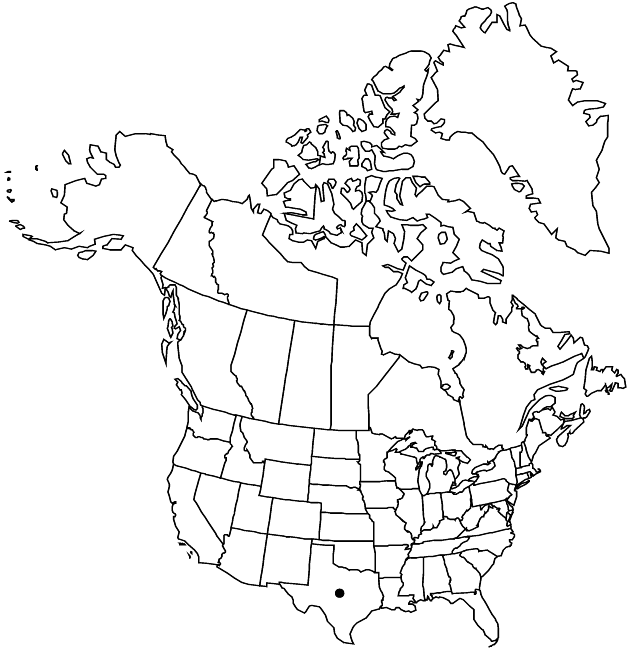Psilactis tenuis
Proc. Amer. Acad. Arts 26: 139. 1891.
Annuals or biennials, 25–100 cm. Stems and branches coarsely antrorse- or erect-hairy, often scabrous, usually stipitate-glandular distally, sometimes proximally. Distal leaf blades sessile, linear-lanceolate to narrowly elliptic or linear, smallest 3–4 × 1–1.5 mm. Involucres broadly turbinate, 4–6 mm. Phyllaries linear-lanceolate to linear, equal or slightly unequal, 2.5–5 × 0.3–0.6 mm, bases indurate, margins scarious. Receptacles convex, 1.8–2.5 mm diam. Ray florets 10–35; laminae 5–8 × 0.7–1 mm. Disc florets 20–55; corollas 3–4 mm. Ray cypselae 1.2–1.7 mm, sparsely appressed-hairy. Disc cypselae 1.5–2.5 mm, sparsely appressed-hairy; pappi 20–35, 2.5–4 mm. 2n = 8.
Phenology: Flowering (May–)Aug–Oct.
Habitat: Calcareous soils in open oak and pine-oak woodlands, rocky streambeds
Elevation: 1700–2600 m
Distribution

Tex., Mexico (Coahuila, Nuevo León, Tamaulipas, Zacatecas).
Discussion
In the flora area, Psilactis tenuis is known only from the Davis Mountains. Because of its distribution in Mexico, it would be expected to occur in additional areas to the southeast of the Davis Mountains, such as the Glass Mountains and Chisos Mountains. Apparently no records of it exist from those areas.
Selected References
None.
